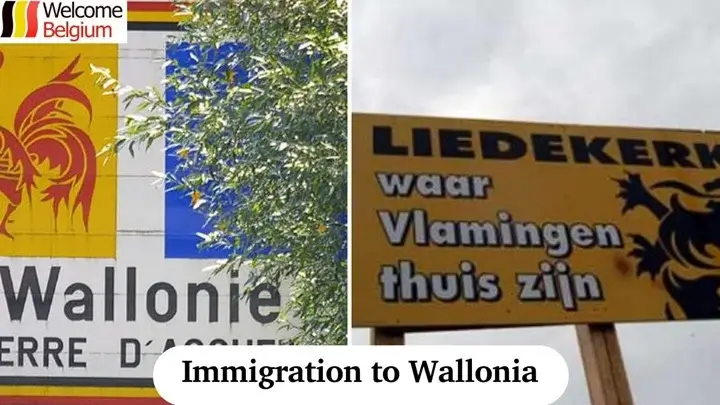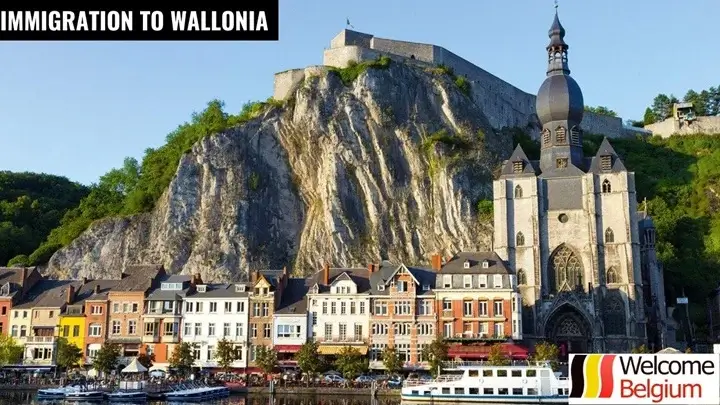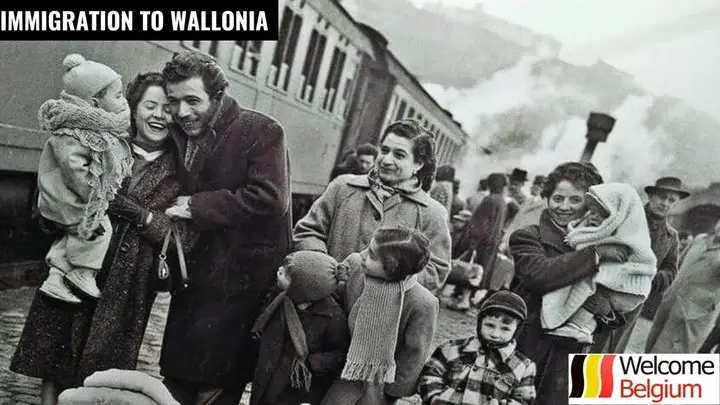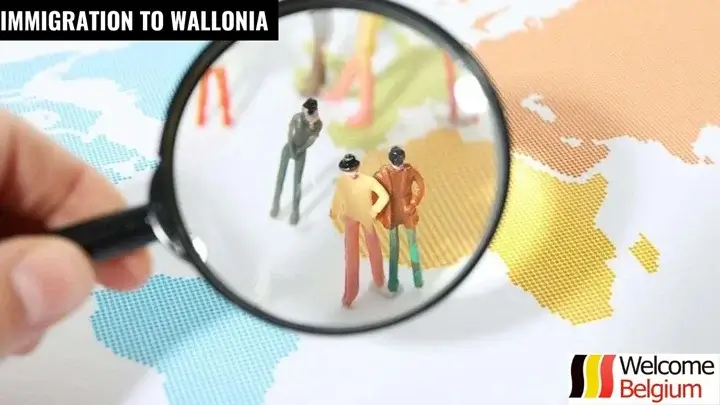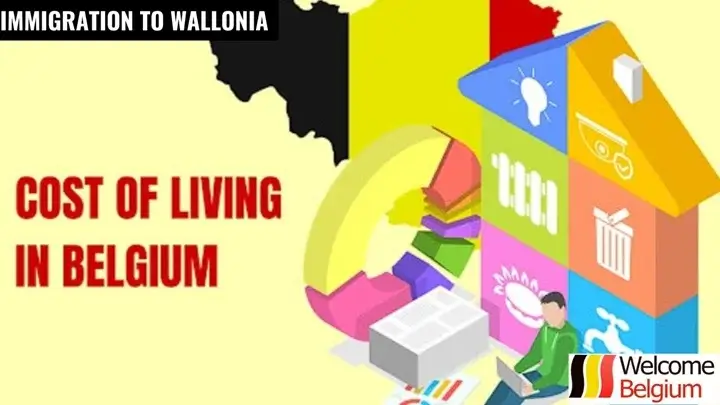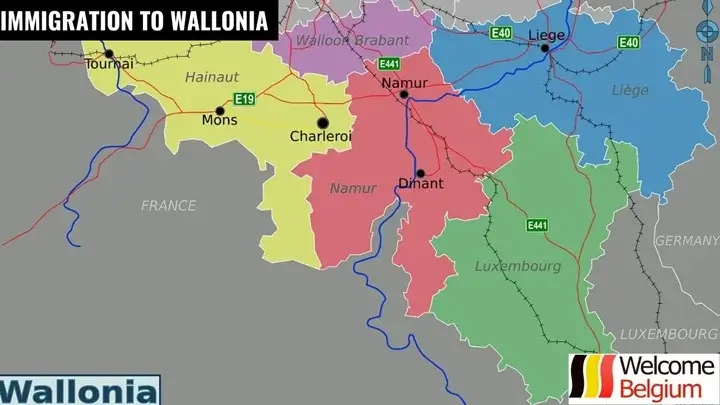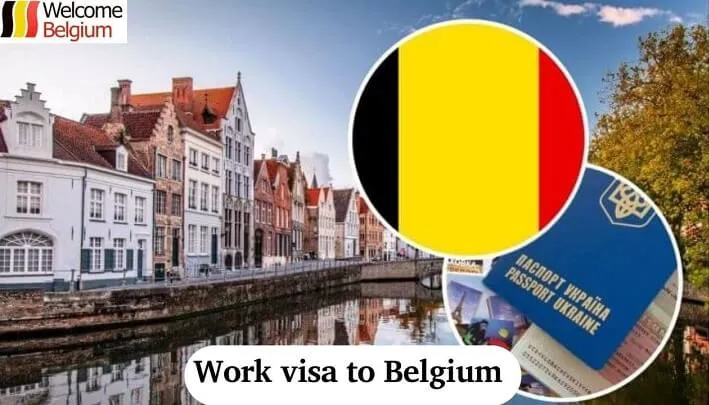In recent years, immigration to Wallonia has become increasingly attractive for people looking for a comfortable and stable life in Belgium. This region, located in the south of the country, is famous for its natural landscapes, rich culture and developed infrastructure. Wallonia offers its residents access to quality education, healthcare and many social benefits, making it an excellent choice for new immigrants. In this article, we will take a closer look at why immigration to Wallonia is so popular and what opportunities it opens up for immigrants.
Why choose Wallonia
Many immigrants choose Wallonia for their move due to its high standard of living, stable economy, and many employment and educational opportunities. This region of Belgium has a rich cultural heritage and a relaxed atmosphere, making it attractive to families and professionals. Moreover, Wallonia actively supports immigrant integration programs, which makes the adaptation process much easier.
Why Wallonia attracts immigrants:
- Economic opportunities: Wallonia is the industrial and economic centre of Belgium, offering a variety of employment opportunities in industries such as mechanical engineering, chemicals and logistics.
- Affordable housing. Unlike the capital Brussels, property and rental prices in Wallonia are significantly lower, which attracts both young professionals and families.
- Rich cultural life. Wallonia is famous for its festivals, historical sites and museums, offering a variety of cultural events all year round.
- Social Benefits and Programs: The region provides a wide range of benefits and allowances for immigrants, including affordable education and social assistance programs.
Thus, Wallonia attracts people not only with its economic advantages, but also with the opportunity to live in a culturally rich region with an affordable standard of living. Choosing this region for immigration is a step towards a prosperous life and stability. Wallonia continues to open its doors to new immigrants, offering conditions that make their adaptation easy and successful.
Interesting fact: Wallonia is one of the largest French-speaking regions in Europe, which attracts many immigrants from France and French-speaking countries.
Types of immigration
Immigration to Wallonia can occur for a variety of reasons, ranging from finding work and education to family reunification or starting your own business. The variety of forms of immigration to this region makes Wallonia accessible to both young professionals and refugees looking to start a new life. Each type of immigration requires a unique set of documents and procedures, which is important to consider when planning your move.
Main types of immigration:
- Labor immigration. Suitable for those who come to work or have already found a job offer. A work visa and employment contract are required.
- Study immigration. Students wishing to study in Wallonia can apply for a study visa by providing an invitation from the educational institution and financial guarantees.
- Immigration for entrepreneurs. Wallonia offers favorable conditions for entrepreneurs, including tax incentives and start-up support programs. It is important to submit a detailed business plan.
- Family immigration. To reunite with family, immigrants must prove family ties and provide evidence of financial support.
- Refugees and humanitarian immigration. People seeking asylum due to war or persecution in their country can receive protection and social assistance in Wallonia.
Each type of immigration to Wallonia has its own unique requirements and nuances that are worth considering when planning a move. This allows a variety of groups to find their place in this French-speaking region, whether through work, education or entrepreneurship. The choice of a specific immigration route depends on individual circumstances, but Wallonia continues to be a region with open opportunities for new citizens.
Interesting fact: in 2020, Wallonia received more than 5,000 asylum applications, which confirms its active humanitarian policy.
Registration of documents
The paperwork process is a key stage of immigration to Wallonia, as it determines the legality of living and working in the region. It is important to understand what documents are required for each type of immigration, as well as to follow the established procedures and application deadlines. Since requirements may vary depending on the country of origin and the purpose of immigration, future immigrants must pay attention to detail.
Main documents for registration:
- Passport: A valid international passport is required to submit any immigration applications.
- Depending on the purpose of immigration, a work, study or tourist visa may be required.
- Certificate of no criminal record. This document confirms the absence of a criminal record and is often required to obtain a visa.
- Health insurance. Immigrants must provide proof of health insurance that covers their stay in Wallonia.
- Financial guarantees. It is necessary to confirm the availability of sufficient funds for living in the region (for example, bank statements).
- Consent for employment (for migrant workers). Must be obtained from the employer, confirming that the employee will be able to fill the vacancy.
Immigration services:
- Name of the service: Walloon Immigration Service
- Website: http://www.immigration.wallonie.be.
- Email: info@immigration.wallonie.be.
- Contact phone: +32 81 33 42 00
Documentation is a process that requires a careful approach and attention. Mistakes or shortcomings in the documentation can lead to a visa refusal or, worse, deportation. Documents collected in advance and correctly prepared will greatly facilitate immigration to Wallonia, making the move more comfortable and safe.
Interesting fact: The Walloon Region offers a special assistance program for new immigrants, which includes advice on paperwork and adaptation to society.
Cost of living in Wallonia
The cost of living in Wallonia can vary significantly depending on location and lifestyle. It is important to understand that housing, food, transportation and leisure costs form the overall picture of financial costs. Generally, Walloon cities such as Liege or Namur can offer more affordable prices compared to Brussels. Therefore, future immigrants should take these factors into account when planning their budget.
Main expense items:
- Rent of a one-room apartment in the city center: from €600 to €900, outside the center: from €400 to €700.
- Lunch in a restaurant: from €15 to €30. Average supermarket bill (per month for one person): about €250.
- Public transport pass (monthly): about €50.
- Bus or tram ticket: from €2 to €3.
- Average utility costs (water, gas, electricity): from €150 to €250 per month.
- Cinema ticket: about €10. Fitness club membership: from €30 to €60 per month.
The cost of living in Wallonia therefore offers a range of options for comfortable living. While some cities may have high costs, overall the region can offer affordable options for those planning a move. Proper budgeting and taking into account all major expenses will help make life in Wallonia more comfortable and predictable.
Interesting fact: The Walloon region is famous not only for its culture, but also for its quality healthcare, making it an attractive destination for immigrants with families.
Subsidies and benefits for immigrants
The Walloon Region offers a range of subsidies and benefits for immigrants, making the integration process smoother and more accessible. These measures aim to support new residents in their efforts to integrate into local society. The main areas of support include assistance with housing, education and social services. Knowing what is available can significantly improve the quality of life of immigrants and ease their financial burden.
Main subsidies and benefits:
- Housing subsidies. Support in the form of financial assistance for renting housing, aimed at reducing rent. Subsidies for the purchase of housing for first-time buyers.
- Education grants. Financial assistance for students, including discounts on university and college tuition fees. Support for parents to cover the cost of learning materials and school expenses.
- Social benefits. Access to social assistance for low-income families. Subsidies for health care and insurance.
- Work and employment. Employment programs that offer financial assistance to create jobs for immigrants. Language and vocational training courses.
The procedure for obtaining subsidies and benefits.
- Registration: Immigrants must register with the local municipality.
- Gathering documents: Prepare the necessary documents such as identification, proof of residence, and financial documents.
- Applying: Contact the relevant service to apply for subsidies or benefits.
- Waiting for a decision. Once an application has been submitted, there is usually a wait for a decision, which can take anywhere from a few weeks to a few months.
Walloon Immigration Service, contact information:
- Address: Avenue des Arts 7, 1210 Bruxelles, Belgium.
- +32 2 557 77 11.
- Email: info@ibw.be.
- Official website. https://www.ibw.be.
Subsidies and benefits for immigrants in Wallonia are therefore an important resource for facilitating integration. Knowing the available forms of support and the procedures for obtaining them can make life much easier for new residents of the region. This allows them to focus on adapting and building their life in a new country.
Interesting fact: The Walloon Region is actively working to improve living conditions for immigrants, offering a variety of programs that help them integrate into society and the economy.
Tips for Successful Immigration
Immigration can be a complex and multifaceted process, but the right approach and preparation can make it much more manageable. Knowing local traditions, laws and resources can make adapting to a new environment much easier. Success in immigration depends not only on legal aspects, but also on the ability to integrate into society. In this section, you will find useful tips to help make your immigration to Wallonia more successful.
Helpful tips:
- Learn a language. Knowing French or Walloon will make it much easier for you to communicate and integrate into the community. Take a language course or use mobile apps to learn languages.
- Explore cultural differences. Understanding local traditions and customs will help you avoid misunderstandings and establish relationships with your neighbors. Participate in local festivals and events to get to know the culture and people better.
- Take care of your documents. Make sure all your documents are in order and familiarize yourself with the rules for obtaining different types of visas and work permits. Check regularly for updates to the law to avoid problems with immigration authorities.
- Build social connections. Building a network of contacts can help you through tough times and make it easier to find information about resources you need. Join local immigrant groups or online communities to share experiences and get support.
- Explore job opportunities. Look at local job markets and job postings to find the right job. Prepare a resume in the local language and learn local employment habits.
Successful immigration to Wallonia requires active participation and preparation. Applying the above tips will help you adapt better to your new life and will make the integration process much easier. It is important to remember that each situation is unique and being prepared for change will help you overcome any difficulties.
Fun fact: The Walloon Region actively supports immigrants by offering orientation courses and integration assistance, making it one of the friendliest places for new residents in Belgium.
Immigrating to Wallonia can be a successful step towards a new stage in your life if you approach the process consciously and prepared. Following the advice given and knowing where to turn for support will help you easily adapt to the local environment and become part of the Walloon community. Remember that patience and an open mind will help you overcome any immigration challenges.

